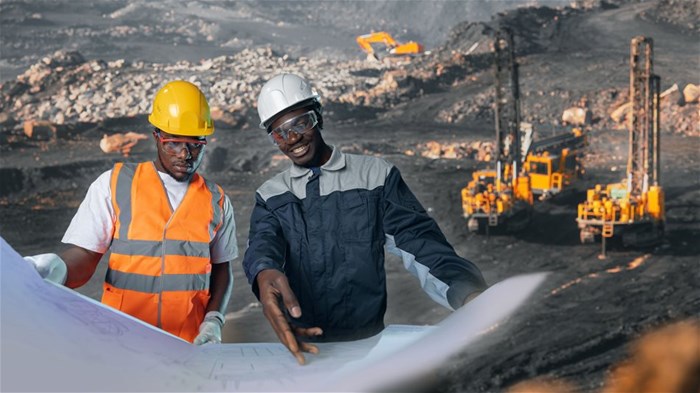






This doesn’t spell the end of the industry, but rather opens up space for ingenuity and transformation. If mining companies are to stay relevant, take advantage of the opportunities that still remain, and contribute to adjacent sectors, they need to be implementing systems and processes that will help drive future growth.
One of the critical ways they can do this is through skills development.
The mining industry is not unaware of the importance of skills development. Learnerships, bursaries, portable skills, internships and adult education programmes are all deeply embedded in the way the industry works. Between 2016 and 2020, companies spent over R6bn on skills development every year. More than 15,000 tertiary-level students were supported in this time, and over 5,000 apprenticeships were granted.
This is not to suggest, however, that all mining companies view skills development in the same light — or invest in it as they should. For some, skills development is little more than a B-BBEE Scorecard-driven, box-ticking exercise that sees only a modicum of effort. These companies largely fail to reap the potential benefits it offers. Those who endeavour to proactively drive skills development, however, often see the following:
Improved health and safety: A strong focus on skills development and training means that employees are likely to work safer. In an industry with the risks that mining poses, this is non-negotiable. Employees need to be literate in order to understand the warning signs in their work areas, and properly trained so that the chances of injuries and fatalities are reduced, even eliminated.
Better productivity and loyalty: As knowledge improves and skills are sharpened, skills development programmes also help to make employees more productive. This has a knock-on effect on operational efficiencies, profits and business sustainability. And it also helps employees feel valued, which contributes to creating a loyal and dedicated workforce.
Stronger social licence to operate: Community-based skills development helps to improve mining companies’ standing in their surrounding areas. This helps to boost their social licence to operate among people whose buy-in is critical, and to limit social and economic tensions. It also helps to improve local economies as skilled workers go on to find employment or start their own businesses.
The mining industry’s sustainability depends on proper skills development interventions, and an acute awareness of the specific skills required.

There are different types of skills development interventions that companies may choose from, depending on the abilities of their workforce and their business objectives. Skills development programmes typically cover an assortment of training in soft skills, technical skills and entrepreneurial skills. All are important.
At Optimi Workplace, our workplace solutions cover tailored, non-accredited occupational learning courses to formal, accredited skills development programmes. They include basic literacy and numeracy courses for employees, MQA-approved learnerships, senior leadership training, and community development programmes.
Technical skills training has become increasingly important with the industry’s adoption of advanced technologies. In many instances, new innovations are being put in place to create safer, more efficient and more cost-effective operating environments. But these technologies run the risk of causing job losses if companies don’t adequately retrain and redeploy their staff. Companies that care for and consider their staff through these transitions are likely to stay relevant down the line.
As for entrepreneurial skills, these skills open entirely new doors to economic growth.
Skills development helps to empower and develop employees and community members both within the mining industry and beyond. Many of the same skills, especially much-needed digital skills, are relevant for other sectors, including construction, manufacturing and agriculture. People who are properly trained are likely to find gainful employment elsewhere.
The opportunity also exists for skilled employees to become entrepreneurs and business owners, so taking the pressure of the mining industry and ensuring the growth of the broader economy. There are also countless instances where these business owners go on to become suppliers to the industry, helping to close a mutually beneficial procurement loop.
As the mining industry continues to change, skills development needs to be an abiding priority. The sector’s future success depends on it.
Bheki Masuku is a sales manager at Optimi Workplace, one of South Africa’s leading providers of workforce and community education and training for the public and private sector.